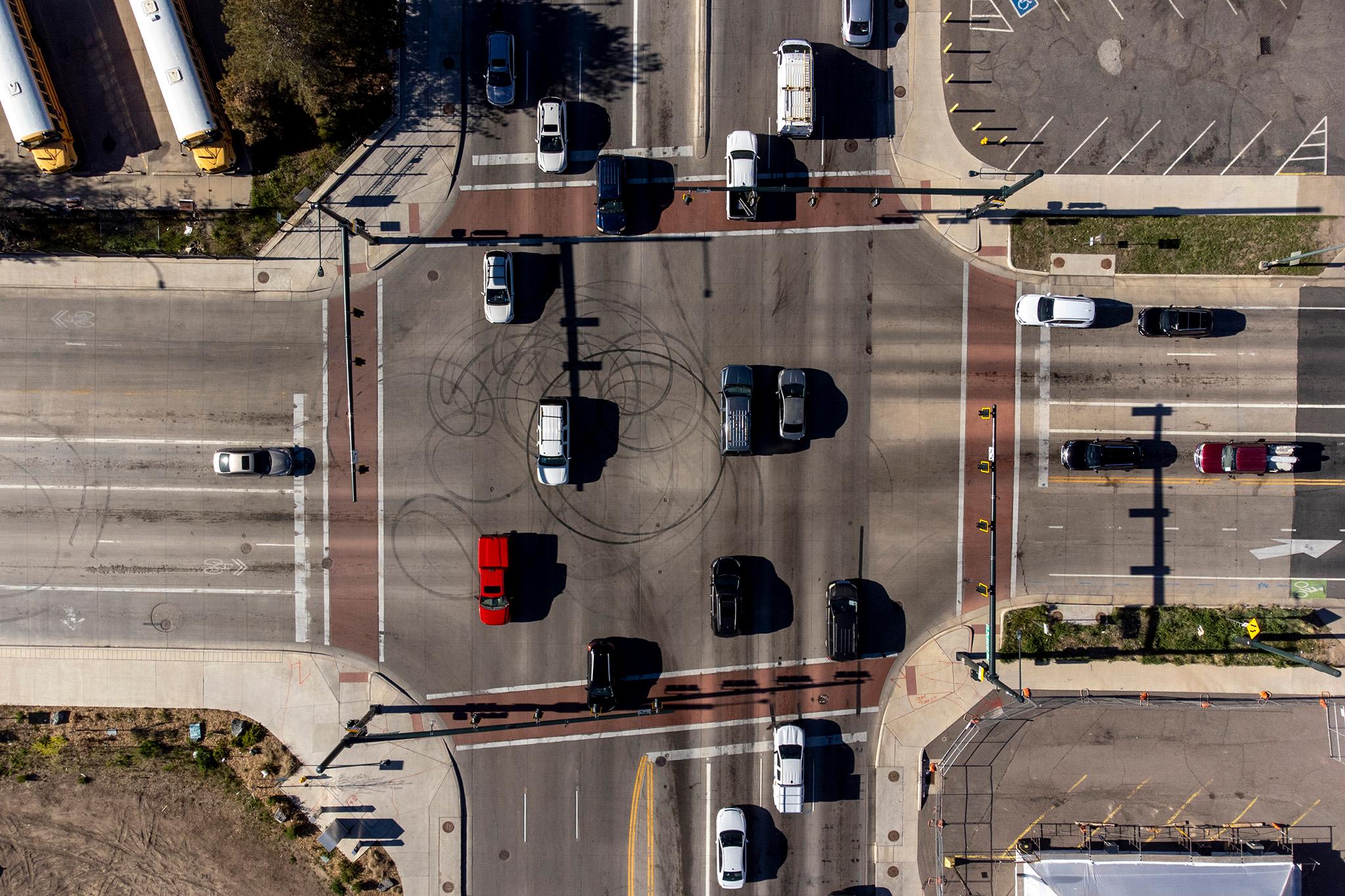Denver City Council rejected a proposal to spend $666,000 to keep a network of automobile-tracking surveillance cameras in Denver for another two years.
Mayor Mike Johnston’s office asked the council to kill the proposed contract, which had attracted backlash from hundreds of people. The city will instead create a task force to address concerns before potentially reintroducing the contract. All council members present voted against the contract. Council president Amanda Sandoval was not present.
The Denver Police Department piloted the system over the past year, joining more than 80 agencies across the state that already use the technology.
The proposal would have extended the contract with Flock. The American Civil Liberties Union has called the company’s technology “Orwellian,” while police say it has helped to stop auto theft and other crimes.
The city will keep the camera system operating while it weights its next move, according to a mayoral spokesperson.
The system uses a “hot list” to identify license plates connected to crimes, including those belonging to stolen cars.
The city put up 111 solar-powered Flock cameras at 70 sites citywide in May 2024. Since then, it has photographed roughly 2 million license plates per month. The captured images led to 289 arrests, 170 recovered vehicles and 29 recovered firearms, according to the city.
The database of captured plates is used by law enforcement agencies nationwide, and critics argue there are too few controls for how those images get used if they leave the city’s hands.
An internal audit conducted by DPD noted that there are no incidents of the Flock system being abused, though officers failed to enter case numbers for investigations in 17 percent of searches, limiting the city’s ability to track why the system was being used.
Council members have raised privacy concerns.
Some of the city’s leaders asked whether the technology could violate the Fourth Amendment — a constitutional protection against unreasonable searches and seizures.
At-large Councilmember Sarah Parady also raised concerns that the system could provide data to federal agencies collaborating on ICE investigations.
“The entire Department of Justice right now is basically being geared towards repression of dissent, you know, punishment of presidential enemies, and gearing up the deportation machine,” she said when the issue came before the Safety, Housing, Education and Homelessness Committee. “So that's my concern about this. It’s not a DPD concern, but just a concern that we're creating some serious potential for unintended consequences by using the tech.”
DPD Commander Jacob Herrera described that concern as “valid” to the council committee.
Council members said hundreds, if not thousands, of constituents wrote in with their concerns about the contract. In response to the pushback, Mayor Mike Johnston’s office asked council members to vote down the contract, but defended the use of the program.
“We appreciate the feedback from the many stakeholders, and look forward to continuing conversations with the community to discuss public safety benefits and ensure that we are addressing privacy and security concerns,” a statement from Johnston’s office said. “As we continue these important conversations, we plan to extend our pilot of the Flock software.”
The city initially signed a one-year contract for the pilot program. That contract was set to expire on Feb. 28, but there is likely enough money to continue it through 2025, a mayoral spokesperson said.
The statement also acknowledged that “today’s environment is much different than when the pilot began in early 2024”, and didn’t close the door on reintroducing the contract.
Still, if the contract is reintroduced, it will likely face staunch opposition from the same members of City Council that opposed it in the first place.
“If this kind of contract comes back to us for a vote, don't stop paying attention,” Parady told the dozens of anti-Flock attendees in the audience.
At recent city council meetings, residents spoke up against the Flock contract.
Dana Miller, a local activist, described the contract as “disturbing.”
She raised concerns during City Council public comment on April 21 that Flock could share information with the Bureau of Alcohol, Tobacco and Firearms, a federal agency involved in the immigration raids in Aurora. DPD has confirmed that ATF contracts with Flock.
Patty Lawless, a cofounder of the Cole Neighborhood Association and a longtime activist, implored Council not to give Flock more money.
“The system creates the potential for violation of the community members’ privacy rights,” Lawless said. “The abuse and unauthorized sharing of data far outweigh any benefits from a law enforcement perspective, its implementation actually threatens the safety of our community.”
At both Monday’s meeting and April 21’s public comment, dozens of people sat in the council’s chamber holding signs that stated: “Flock No.”













